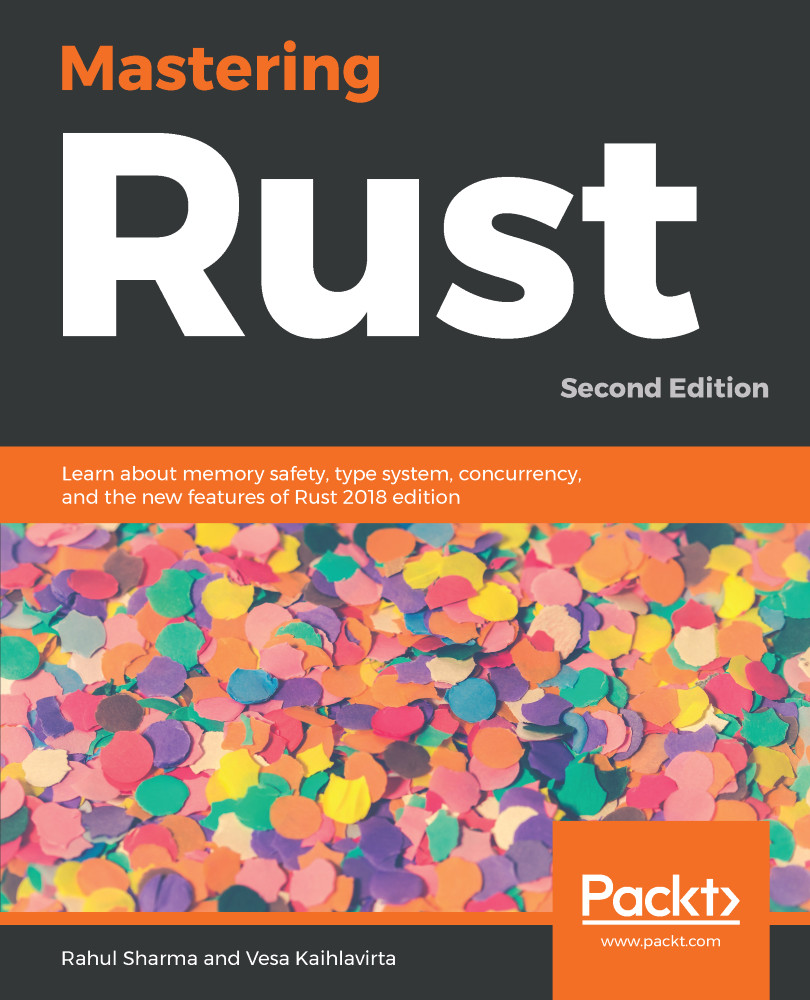Rust provides us with convenient FFI abstractions to interface with different languages and has first-class support for C, as it exposes the C ABI (cdecl) for functions marked as extern. As such, it's a good candidate for bindings for a lot of C/C++ libraries. One of the prominent examples of this is the SpiderMonkey JavaScript engine that's implemented in C++, which is used in the Servo project. The Servo engine calls into C++ using the bindings that are generated via the bindgen crate.
But, when we are interacting with cross-language boundaries, the language constructs and data representation that one language has don't need to match with the other language. As such, we need to put extra annotations, along with unsafe blocks, in Rust code to let the compiler know of our intent. We saw this when we used the #[repr(C)] attribute. The Foreign Function Interface...


